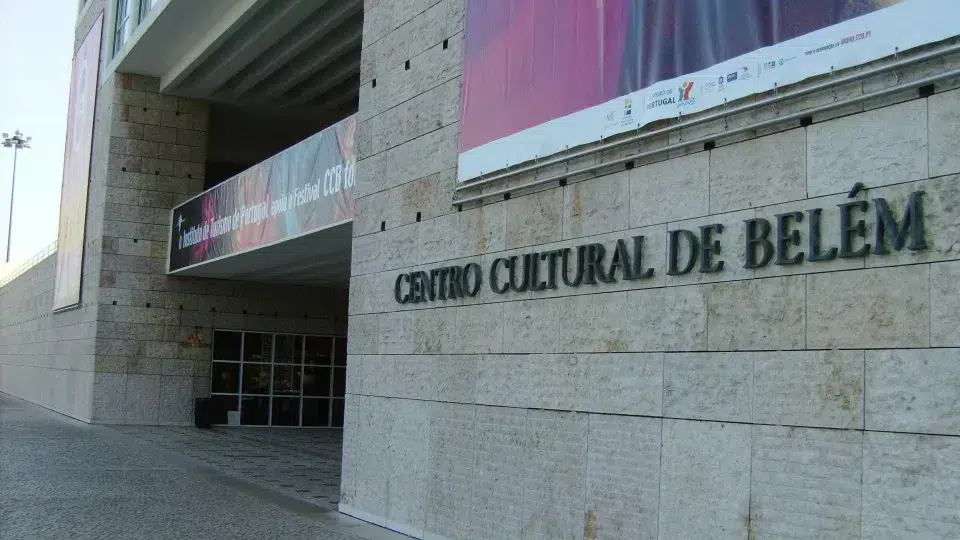
The board of directors of the CCB stated to the Lusa agency that “the referenced event occurred following the rental of a room at the CCB Congress and Meeting Center for a private event whose specific content was not known”.
“The CCB Congress and Meeting Center holds dozens of private events promoted by third parties every month and has been active in the events market since its founding in 1993, initiated by the first Portuguese Presidency of the European Union. It enjoys great prestige as a service provider in this area, guiding its commercial policy by principles of respect for legality, freedom, and tolerance,” the CCB administration note adds.
Pedro Zegre Penim, in a post on his Facebook and Instagram accounts on Saturday, “publicly distanced himself” from the CCB, citing reasons of “institutional coherence, but also of personal and political integrity.”
“The event held this Friday in that space, promoted by the so-called Patriots Foundation, publicized by Chega and attended by far-right figures, turns a public cultural space into a platform for the institutional legitimization of discourses that deny the values of freedom and equality,” wrote Pedro Penim, referring to the first conference promoted by the Patriots Foundation, under the theme ‘The great pushback – Freedom first,’ held in that cultural space in Lisbon.
The conference was also publicized by Chega MEP António Tanger Corrêa, who praised “the first conference in Portugal of the Patriots Foundation” in various posts on X and Instagram, with a statement that “the green deal is to be suspended”: “The Great Pushback starts now! Stay tuned – this is just the beginning!”
The Patriots Foundation, which comprises MEPs from the Patriots for Europe group in the European Parliament, with Chega as a member, presents itself on its website as “a European political foundation registered with the Authority for European Political Parties and European Political Foundations,” composed of individual members representing it in several Member States, including France, Belgium (Flanders), Austria, Italy, Slovakia, Bulgaria, Estonia, and the Czech Republic. It claims to be based “on democratic principles” and opposes “any transfer of national sovereignty to supranational bodies and/or European institutions.”
On its website, it publishes articles on what it calls “neo-feminism” as a threat to the security of women, immigration control as “a major challenge to be overcome by Europe,” and the prevalence of criticisms of Viktor Orbán’s government and its authoritarianism, in power in Hungary since 2010, as evidence that press freedom is at risk in Western countries.
Pedro Penim, who is also the artistic director of the National Theatre D. Maria II, told Lusa that his position “is a very personal thing, but it has the implications it has.” Asked by Lusa whether his personal opinion implied not taking TNDM shows to that cultural center, Pedro Penim said, “there is no forecast of TNDM performing shows at the CCB.”
What Pedro Penim “was actually expecting” was, “in some way, that the board of directors [of the CCB] would position itself on this issue,” because, “so far,” he has “no data, no official explanation for what happened.”
Also “to be able, eventually, to assess what more institutional implications it could have,” he emphasized.
“In my case, and as an artistic director, what I say in the post I maintain, also for a matter of personal coherence, political coherence, artistic and cultural coherence,” he indicated.
For Pedro Penim, “some form of justification (…) minimally acceptable for what happened is necessary.”
“Therefore, for now, there are no other implications beyond this personal implication of, as I say in the post, publicly distancing myself from what the activities of the CCB are, and I think that’s the coherence I mentioned,” he emphasized.
As the artistic director of TNDM, he added that he is “still awaiting what justifications may come from the board of directors, since at the moment, there is also no artistic direction and, obviously, it’s also a room rental,” he stressed.
For Penim, however, the CCB “is not a space without scrutiny, without subsequent consequences regarding its content even when they are rentals,” he argued.
“CCB conducts its activities guided by principles of pluralism and tolerance, values reflected in its own programming, both in terms of shows and the activity of the Museum,” the CCB administration emphasizes in the note sent to the Lusa agency.
Not speaking on behalf of the theater he artistically directs, Pedro Penim admitted that the comments published on social media are “also a way to create some pressure to understand what happened.”
“And, once again, emphasizing this idea that cultural institutions cannot, should not be vehicles for authoritarian messages, exclusionary messages, and messages that may somehow harm the sensitivities of communities.“
In the case of the conference held at the CCB, Pedro Penim said it “even seemed” that there was “some attempt” to give it “invisibility.” However, this does not mean that it lacks a very direct relationship with the institution’s stance towards the public and Portuguese society.
Without asking that the CCB board of directors take a position with the same “dimension” of his “individual responsibility,” which guides the principles he abides by, and not just his ‘public persona,’ Pedro Penim argued that there are “definitely red lines.”
“And I think this was a very clear transgression of that red line.”
The CCB board emphasizes in its note that “it is important to point out that, on the same day and at the same time [as the conference], a play commemorating the 50th anniversary of Teatro O Bando, honoring Agustina Bessa-Luís and João Brites, was being presented in the Grand Auditorium. It was programmed by CCB and sold out – an example of the constant commitment of the Centro Cultural de Belém to artistic creation and the valorization of Portuguese culture.”




